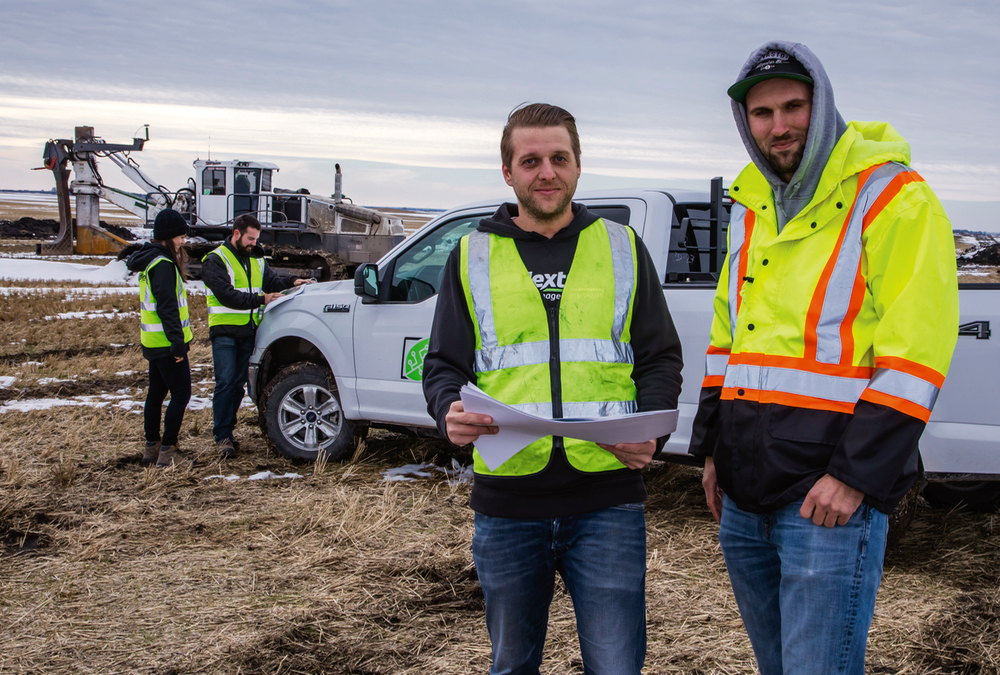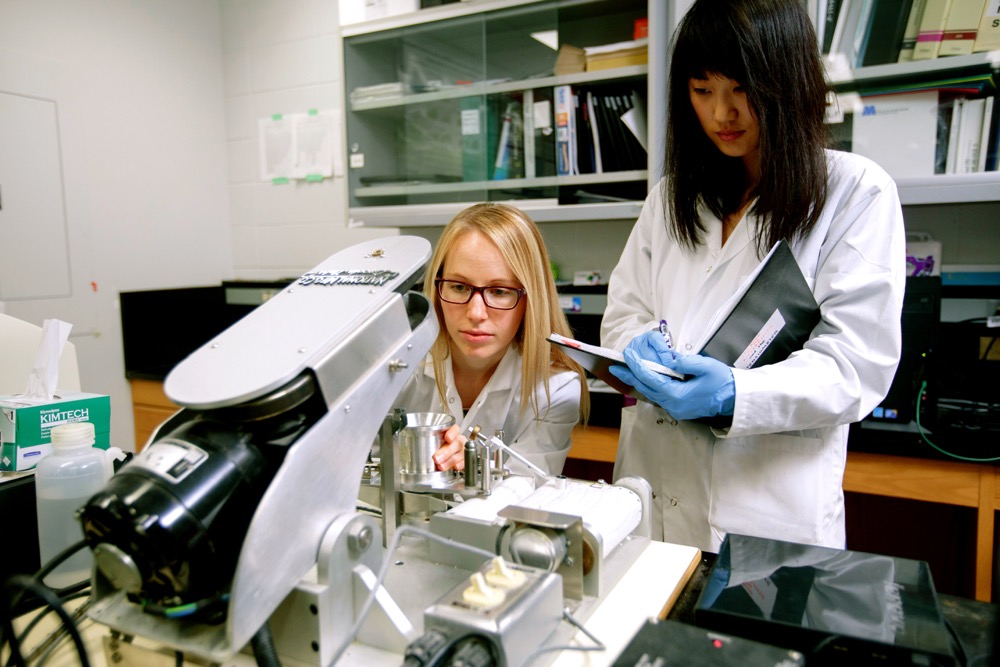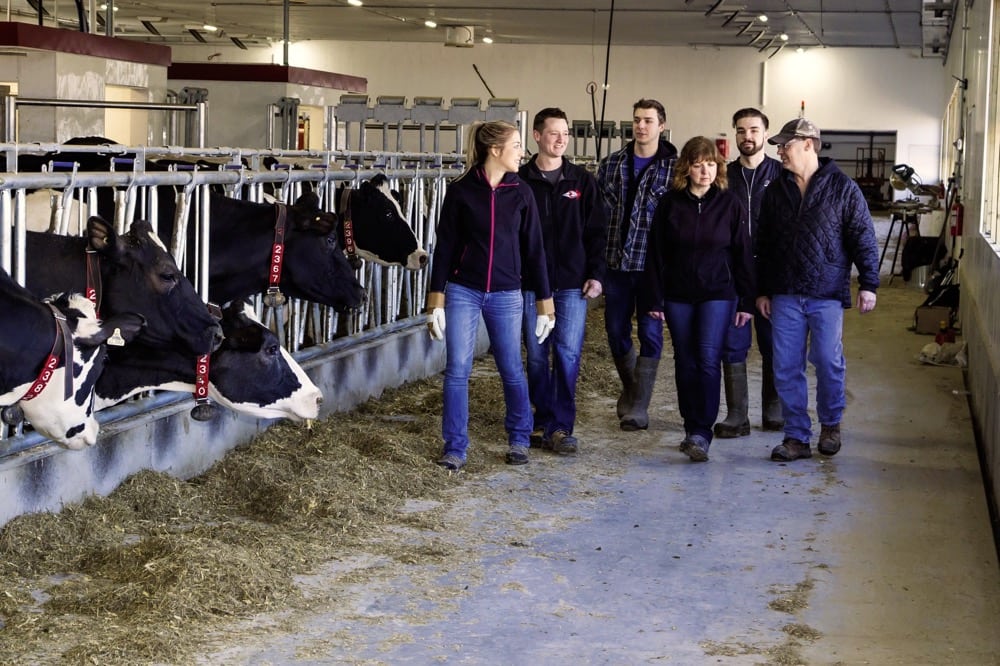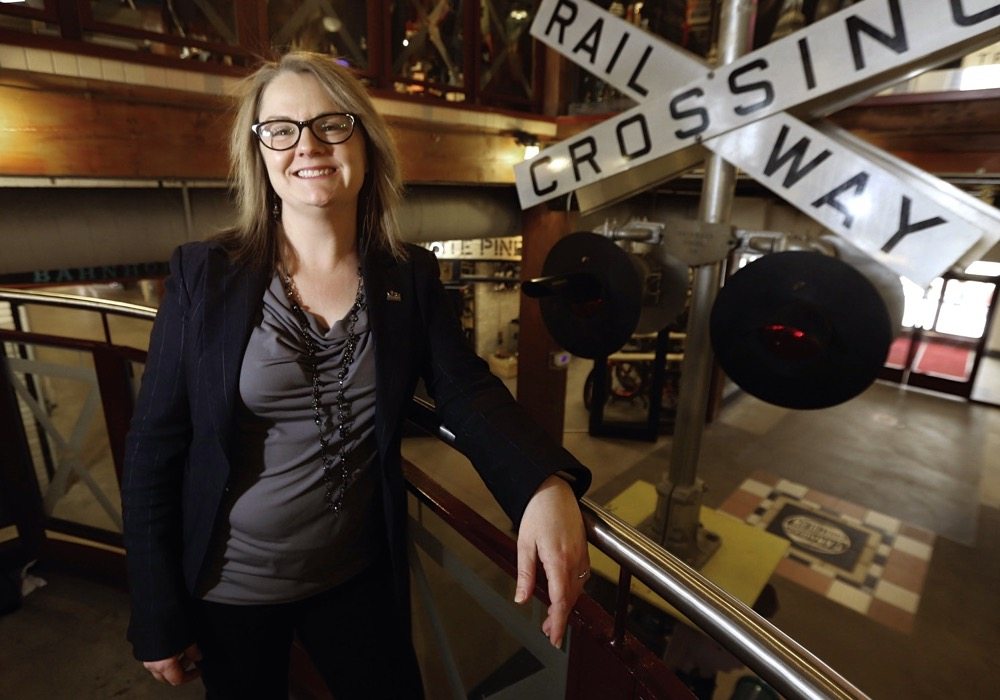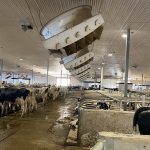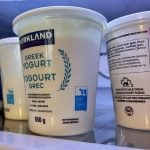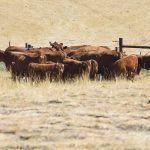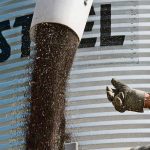When Garry Spenst and his sons, Paul and Garreth, heard that the Real Canadian Superstore was coming to Winkler, Man. they took the biggest gamble of their lives.
The family paid $100,000 to buy the lot right next door.
Soon, they were building their family-owned retail meat store, Spenst Brothers Premium Meats, a project that has proved so successful, they’re now preparing to move into a new, $2.3 million facility, three times the scale of the original.
Yet Winkler hadn’t been their original plan, says Paul Spenst, who explains the family initially considered building a small abattoir on their farm near Rosengart in south-central Manitoba, where they would cut and wrap the beef they raise and sell it direct from the farm gate.
But when they investigated the business opportunity, the family began to question the home-based location. Would consumers really drive 20 minutes to the farm?
“We wanted to be right with Superstore,” Paul says.
Since the start, not surprisingly, they’ve heard the David and Goliath comparison of Spenst Brothers versus Superstore. But they didn’t like it then, and they don’t like it now. The comparison misses the point, Paul says. “We are not trying to compete with Superstore, that’s not the idea. We have products they don’t have, and a quality of service they don’t have.”

365 Cows and No Market
What prompted the brothers and their parents, Connie and Garry, to think about a retail business was the BSE crisis in 2003, which closed the border and left them with 365 cows — one for every day of the year — with nowhere to go. “It was do or die. Where was our income going to come from?” says Paul. “At that time, Garreth and I were working nights at Saputo Cheese, just to try and pay the farm bills, then during the day we’d work on the farm.”
Those were some pretty tough years, Paul remembers. “Mom and Dad were secure, they weren’t going to lose the farm, but Garreth and I had just bought four quarters of land, and we had all these cattle. We had our backs to the wall. We had to make it work.”
Read Also

‘No agenda, no attenda’: How to professionalize your family farm meetings
Establishing meeting ground rules can help a farm family find ways to communicate that work for the business and the family.
But the Winkler building plans weren’t exactly a piece of cake either. Just as they were ready to pour the foundation, the contractor pulled out. “That was when we said, we have to do it ourselves,” says Paul.
The whole family pitched in and literally built the facility themselves from the ground up, often to the amusement of the stream of gawkers checking out the huge Superstore going up next door.
“We must have looked a bit strange,” says Paul. “Superstore was building and they had 10 payloaders and trucks hauling gravel and packing, and there was lots of noise and dust. When we started packing gravel here at the same time, we were using the farm loader and a tandem.”
Halfway through construction, Connie, together with Paul’s wife Felisha, and Garreth’s wife Marianne, suggested they also offer pizzas, exclusively made with their own deli meats and sausages, so the plans were changed to incorporate a 15 ft. x 20 ft. kitchen. It was another good decision. Today, pizza sales aren’t far behind their retail beef.

Giving People What They Want
Besides its own retail outlet, Spenst Brothers supplies 45 other local stores with their fresh and frozen beef products, pizzas, deli meats, cured bacon, meat pies, sausages, and perogies, plus fresh-baked buns and cakes.
In summer, they sell more than 100,000 hamburger patties a month, with ground beef that is just that — no other cuts are thrown in.
“We have a different idea of what ground beef is,” says Paul, who believes giving people what they want, and making it good, is the only way to build repeat business.
“I can sell anybody anything one time, that’s easy, and if that person likes it, they’ll come back,” Paul says. “You aren’t going to change people’s mind about what they like or don’t, so you have to be careful that you make what people want. Winnipeg, for example, is a kubasa market, but here we sell farmer sausage because that is what people love.”
Kubasa might be in Spenst Brothers’ future though, because with the expanded facility, they are looking to expand their retail and wholesale markets. “Our problem has always been in the last eight years that we can’t produce what we can sell,” says Paul. “With our new site we won’t sell what we can produce, so that is motivating us to find new opportunities in Winnipeg, Brandon and Portage la Prairie. We haven’t really touched any of those markets yet.”
A New Facility
The federal and Manitoba governments have provided $250,000 in funding for the new facility through the Growing Value program, designed to assist existing agri-businesses compete in domestic and international markets.
The kitchen will move to the new facility, which provides a lot of space and incorporates new technology and equipment, such as state-of-the-art packaging and refrigeration systems, conveyors, and ovens. It will also automate some processes currently done by hand, like forming 2,000 dough balls a day.
“We’ll have more automation but we don’t want to give up on the way the product looks,” says Paul. “It will still be buns the way Mom made them. If we have to, we will change equipment to make it work for the recipe, not change the recipes to suit the equipment.”
It’s an important distinction, because Spenst Brothers’ business is built partly on their service, but mostly on the quality and consistency of their products. Paul says he knows that local people support the store, and the Spensts try to reciprocate by supporting local charitable causes and using local ingredients.
But Paul doesn’t expect people to buy from his store. “I never want to say, please shop here because you live here,” he says. “I acknowledge the importance of supporting local people, but I don’t ever want it to be a crutch.”

Farmers First
The family farm still supplies all of the beef — raised on a special diet without hormones — and the herd has grown significantly to around 600 head. It’s still very much a working farm, and Connie Spenst says the family will always consider themselves to be farmers first.
“Without the farm we wouldn’t be here,” Connie says. The farm land base has expanded to around 2,300 acres, about a third of which is needed to grow feed, while the rest is seeded to corn, cereals and oilseeds. These days Paul splits his time between being the general manager at the store, dealing with financial and administrative duties, and helping his dad Garry with the daily farm operations.
Even the farm succession hasn’t gone exactly as they all thought it would. The brothers had grown up working on the farm and both knew they wanted to come back to it once they finished their post-secondary education. A meat processing business wasn’t in the cards back then.
At first it was Paul and his wife Felisha who seemed to be spending most of their time at the store after it opened in 2005, while Garreth continued to help his dad out on the farm. Logically, it appeared that Garreth was going to be the one to take over the farm, until the store unexpectedly lost a key employee; their sausage maker.
“That’s when we discovered that Garreth has a gift for figuring out a recipe… he was just a natural fit in the kitchen,” says Paul. “He went to work with an older German meat cutter and sausage maker for a while, but basically he just really went to the drawing board and taught himself the concepts of sausage-making and curing meats. He has an incredible talent and he is just terrific with the customers and the staff too.”
With Garreth at the store, everyone realized that Paul, who missed farming, should take over the farm operations, and Connie and Garry told him it was time to move his family to the farm, which they did.
Paul gives his parents a lot of credit for supporting their sons’ decisions. “We don’t always agree but we have to come to a resolution,” says Paul. “What I appreciate about Mom and Dad is that they will allow us to make a decision that they maybe don’t agree with.”
A Lot to Learn
Paul has a Bachelor of Science degree from the University of Manitoba and Garreth has a Diploma in Agriculture also from the U of M. It was hardly the kind of education geared to running a meat processing and retail facility and, as a result, the brothers have probably had to fly by the seat of their pants more than might have liked. They’ve turned to mentors, like the veteran sausage maker in Winnipeg who helped Garreth unravel the complexities of sausage-making, and they hit the books hard, studying up on everything from finances to management.
Paul says he realizes that a lot of his management style stems back to lessons learned from the first boss he ever had.
“I was 15 and bought a bike and biked to work at MacDonald’s. That was pivotal for me because the manager was so fussy about cleanliness and customer service,” says Paul. “To this day, I will send staff out to pick up cigarette butts outside, and they roll their eyes at me just like I did years ago when he sent me to do the same thing. He taught me to look at customers, to make conversation, and serve them like they’re my favourite aunt. Another thing I remember is that whenever I walk through the store, I look with a critical eye. I try to pretend I am a customer, trying to find something wrong because we always want to continue to improve.”
A Passion for Feeding People
The Spenst family simply has a passion for feeding people, whether it’s at a family barbecue, or at a farmers’ market, or through the epic charitable events they put on to raise funds for the children’s ministry in Mexico that Connie and Garry volunteer with each December. “Twice a year we put a tent on the lot next to us and set up a food booth and invite people to come,” says Connie. “One hundred per cent of the proceeds from the food they buy goes to feed these Mexican children.”
The event touches many people in the community because Winkler has a high Mennonite population, many of whom came from and still have family in Mexico. Last year the event raised $38,000, which the ministry used to purchase an oven that allows it to feed 300 children, three times a week, adds Connie.
The family members all have hectic schedules, but they’ve all carved out their own niches and enjoy what they do. Connie and Garry love serving people food and, with the occasional help of Felisha and Marianne — both busy moms — they cater events in the community and attend the weekly St. Norbert’s farmers’ market near Winnipeg throughout the summer.
Garreth is busy at the store making new and favourite recipes for the customers. Paul divides his time between the office and the farm, often taking orders or ordering supplies from the tractor cab.
“Our plate is full but we enjoy it,” says Paul. “I love what I do. I enjoy working on the farm, but I try to make a point of being at the store on Saturdays and serving because I like to be in touch with what’s happening here and interact with the customers and make sure we keep on track.”
If they had to do it all over again they would love to have time for some formal training, says Connie.
The big lesson though is one they learned for themselves. “You can’t let fear take over,” Paul says. “Not making a decision is still a decision. You have to try something and go with it. Be OK with it if people laugh at you and if you fail, try again.”





